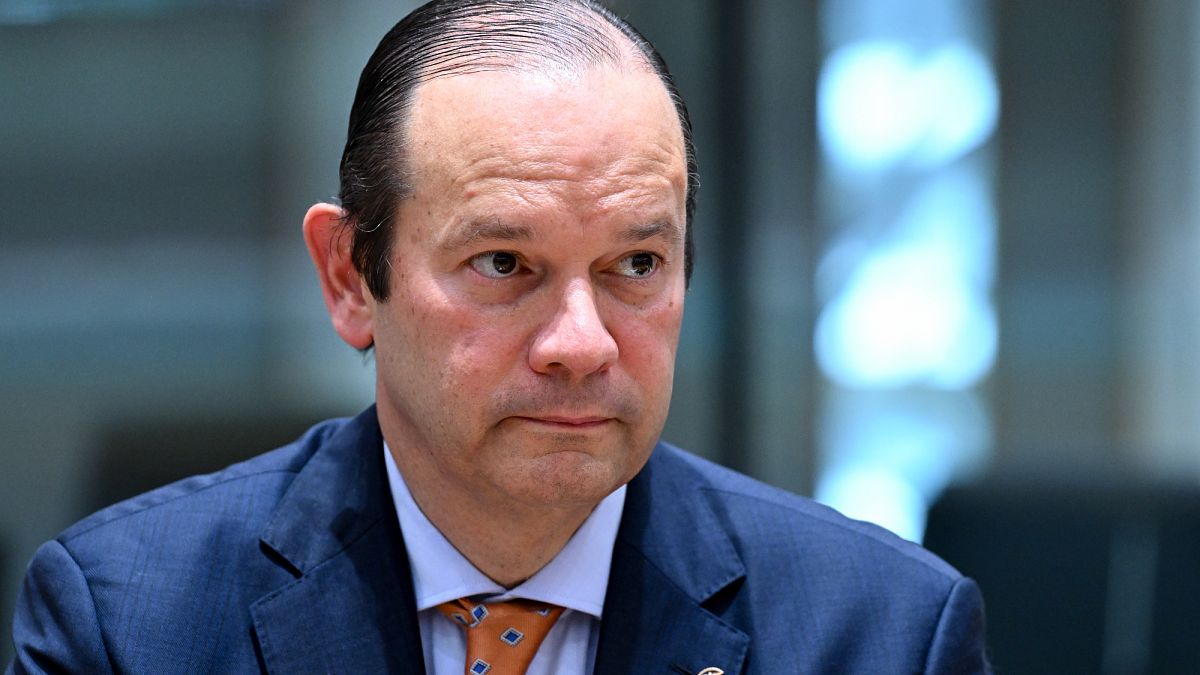Published on
Following US President Donald Trump’s repeated threats to take control of the Panama Canal, arguing that the US-built trade passage is key to national security, a memorandum has allowed Washington to carry out a series of military exercises with the Panamanian police.
Three helicopters arrived in the area on Sunday to train for a possible scenario to protect the canal.
Amid concerns over a possible US takeover, Panama has defended the security agreement reached with Washington and denied that sovereignty has been ceded.
“There will be no permanent presence of foreign forces in our territory. This is temporary,” Panama Foreign Minister Javier Martínez-Acha told Euronews.
“We have no presence of troops of any nationality. We have signed a memorandum of understanding, as we have with other Latin American countries, to carry out joint exercises to prepare ourselves for asymmetric threats, to prepare ourselves in case we have to act jointly to contain organised crime, drug trafficking,” Martínez-Acha said in an interview.
Relations with Washington were strained after Trump accused Panama of ceding control of strategic infrastructure to China.
However, the foreign minister claims that the tensions have dissipated.
“We understand that we have a privileged region with the United States. At times it has been complex, but today we are cooperating very well based on respect for Panama’s integrity and sovereignty,” Martínez-Acha said.
Some 6% of the world’s maritime trade passes through the Panama Canal each year.
More cooperation on tax matters
Martínez-Acha has travelled to Brussels to take part in the European Union-Central America Association Council on Monday.
One of the issues that has caused the most controversy over the years is the inclusion of Panama on the list of non-cooperative countries in tax matters.
Martínez-Acha denied that his country is a tax haven and pointed out the assurances he has given to Brussels.
“We are a responsible country. We are a country committed to transparency and tax cooperation”, he explained, while acknowledging that there is still work to be done.
“We will do them. We are considering reforms in the way tax cooperation is transmitted,” Martínez-Acha said.
Following a vote in the European Parliament ratifying a European Commission proposal, Panama has now been removed from the blacklist of countries with weak controls on illicit money flows.
However, the Central American country remains on the list of non-cooperative states for tax purposes, which also includes Russia and Trinidad and Tobago.
Among the pending tasks is the elimination of preferential tax regimes to avoid the existence of offshore structures without genuine economic activity.
“We have to make a reform from a tax point of view so that if these multinational companies have economic substance in Panama, or if these foreign incomes are repatriated to Panama, they are subject to tax,” Martínez-Acha explained.
“If they are repatriated to third countries, then they will not be subject to tax”.
For Europe, Panama is not only strategically important economically, but also essential in preventing sanctions violations against countries such as Russia.
Read the full article here


